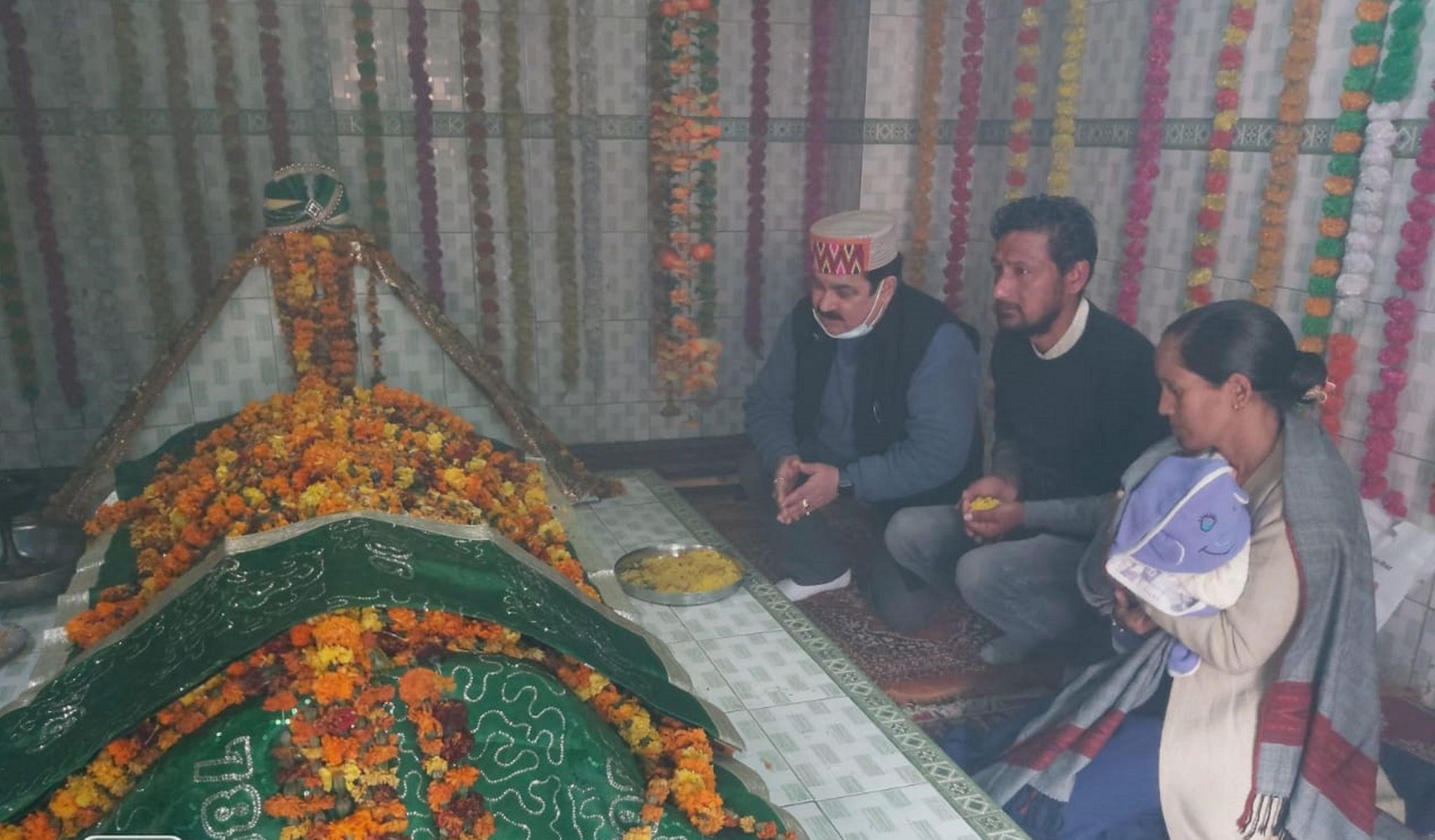In the picturesque town of Kullu, a unique personality stands out Surendra Mehta, affectionately known as Bhai Ji. For many years, his Hindu family has been dedicated to serving the community at the shrine of Pir Baba Lala Wale. This shrine is not just a place of worship but a symbol of faith, unity, and communal harmony, believed to fulfil the wishes of every devotee who comes with a pure heart.
Surendra Bhai, a resident of Akhara Bazaar in Kullu, has been the caretaker of this sacred shrine, a role that has been lovingly passed down through generations in his family. “Our family came to Kullu in 1908,” says Surendra Mehta. “My grandfather had a deep devotion to this shrine, and ever since, our family has been devoted to Baba.” The legacy of their devotion has been maintained by continuing to open the shrine to people of all faiths, fostering a sense of shared spirituality and community.
The shrine witnesses a large influx of devotees, especially on Thursdays and Sundays, when people from all walks of life and different religious backgrounds come in droves to seek blessings and fulfil their wishes. It is said that those who visit the shrine with genuine prayers, whether they are childless couples or individuals suffering from illnesses, find solace and solutions here. As a token of gratitude, offerings such as sweet rice and floral sheets are presented to Baba when wishes are fulfilled.
A beacon of communal harmony
In a country as diverse as India, where religious and cultural differences have sometimes led to conflicts, places like the shrine of Pir Baba Lala Wale stand as powerful symbols of communal harmony. The shrine is known for its all-embracing nature, welcoming people of any caste, creed, or religion. This inclusive spirit is especially significant in India, where Hindu-Muslim relations have had a complex history marked by periods of both collaboration and conflict.
The Hindu family that oversees the shrine’s maintenance, led by Surendra Mehta, plays a pivotal role in promoting unity and peace. They ensure that the shrine remains open and accessible to everyone, irrespective of their religious affiliation. This openness has not only strengthened the faith of the Hindu community in Baba but has also drawn Muslims and people of other faiths to the shrine, creating a microcosm of interfaith harmony.
The broader context of Hindu-Muslim relations in India
The example set by Surendra Mehta and his family is particularly important in the broader context of Hindu-Muslim relations in India. Historically, India has been a land of religious diversity, where different faiths have coexisted for centuries. However, there have been instances where political and social tensions have led to communal strife. In such a landscape, the actions of individuals and communities that promote understanding and cooperation are invaluable.
Surendra Mehta’s dedication to maintaining a space where people of all religions can come together is a reflection of the broader ethos of India’s pluralistic society. By fostering a spirit of inclusivity at the shrine, Surendra and his family are helping to counteract the divisive forces that sometimes seek to exploit religious differences for their gain. Their work ensures that the shrine remains a sanctuary of peace, where communal harmony is not just an ideal but a daily practice.
A call for unity and peace
Despite the occasional tensions between communities across the country, Surendra and his family remain hopeful. “It saddens us to see discord, but we strive to ensure that the shrine remains a beacon of peace and harmony,” they say. The family hopes that their efforts will help foster a spirit of unity and mutual respect in the nation. Their work is a testament to the idea that, even in the face of adversity, it is possible to find common ground and work towards a shared future.
In a world often divided by differences, the shrine of Pir Baba Lala Wale and its caretakers offer a powerful example of harmony and devotion, where faith transcends religious boundaries and fosters a sense of shared humanity. Their efforts remind us that communal harmony is not a distant dream but a reality that can be achieved through dedication, empathy, and a commitment to the common good. As India continues to navigate its diverse religious landscape, the story of Surendra Mehta and the shrine of Pir Baba Lala Wale stands as a shining example of what is possible when communities come together in the spirit of mutual respect and understanding.
Related:
Tamil Nadu sets example of communal harmony amidst a polarised country
Professor VK Tripathi and his pamphlets of hope, social justice and harmony
